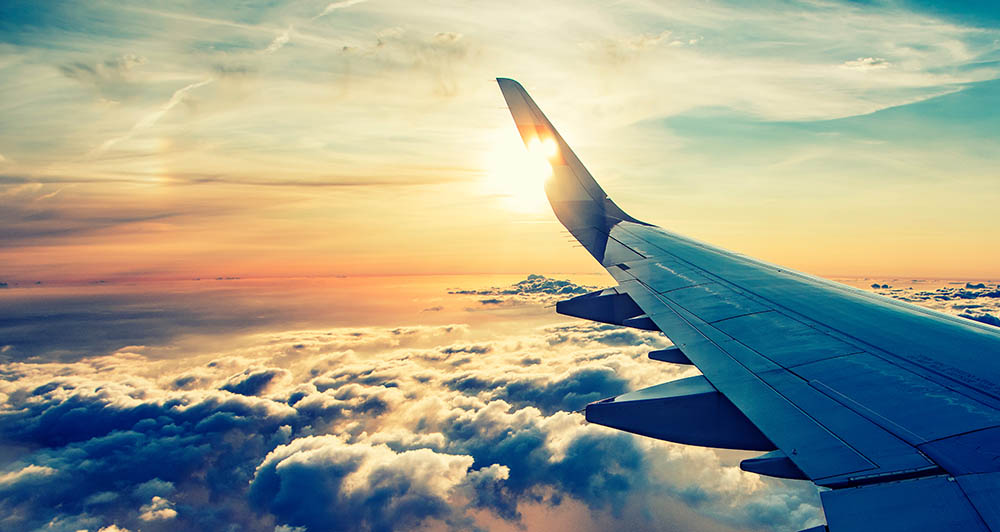Experts say that airline business travel has reached about 80% of pre-pandemic volume. What about the remaining 20%: will it be possible to recover? And if not, what is stopping this recovery? We’ll take a look at the past, present and future of corporate flights. So, let’s get started.
TABLE OF CONTENTS
THE PAST
Why is airline business travel historically so important?
Airline business travel has historically been the crème de la crème of the airline industry’s profits. For starters business travelers are less price sensitive. When someone else is paying for it, travelers are likely to focus on convenience and a series of other factors rather than price. Schedule, airport, cabin class and the frequent flier programs are often more important for business travelers as they want to arrive in the best conditions possible, ready to conduct meetings.
This means that business travelers tend to pay three or four times more than a leisure traveler, which is a huge part of profitability for airlines. Many large airlines have been completely reliant on business travelers, designing corporate policies, distribution, scheduling, and more aspects of their business around this kind of traveler.
THE PRESENT
How the pandemic has affected the airline industry
Fast forward to 2020, and the world came to a standstill. All flights, with the exception of some business flights, and repatriation flights, came to a halt in order to put a stop to a raging pandemic. The airline industry was in over their heads. How would they ever recover? And how to start airline business up and running again? The sense of drowning was not only due to the fact that leisure travel took a look until 2 years after the start of the pandemic to recover, and business travel still hasn’t fully recovered. Why not?
The rise of video calls
Many companies have discovered that video calls can be just as effective for meeting purposes as traveling for in-person meetings. Replacing business travel with zoom meetings reduces fatigue, boosts employee satisfaction and can even increase productivity. Choosing whether to travel or not to travel is only further propelled by the fact that many companies have tighter budgets than ever to recover lost revenue from the pandemic.
Furthermore, if there’s one thing the pandemic has changed, it’s the fact that traveling for the sake of traveling is a thing of the past. Whereas in the past you may have hopped on a plane just to take a client out to lunch, that same kind of traveling post-pandemic now may seem a little frivolous (plus a huge waste of money, resources, and time. Not to mention it’s not the most sustainable choice). Making smart choices means traveling less and traveling better too.
Excessive travel shaming
There was a time when being a road warrior, jetting around the globe for business travel meetings, events and congresses, was an aspiration. Nowadays there’s a stigma around this excessive air business travel that can lead to travel shaming as it’s seen as unsustainable, wasteful and unnecessary.
Road warriors are being succeeded by digital nomads as the cool thing to do as the pandemic saw a rise in work from home. Why work from home when you can work from a remote beach in Thailand? Of course, this is not for everyone, and many continue to do their jobs normally, just traveling a little less than the norm. Let’s just say you may come across less road warriors nowadays as opposed to prior to the pandemic.

The good news for the airline business travel
While the business travel paradigm is changing, there is one trend that means good news for the airline industry: work from home. You may wonder: why is work from home good for the airline industry? With more and more people working from home around the world, location-independent folks also have a rising demand for human connection, which is a great way how to start airline business up and running again. This means more business travel for team buildings, to bring colleagues together from around the world. People will also be more eager to attend meetings and congresses than they were pre-pandemic when travel fatigue was a real thing.
THE FUTURE
Controlling costs
The future of business travel, and in particular the future of airline business travel definitely involves a close look at controlling costs to optimize travel spend. As companies experience a strong push from executive leaders to cut costs in order to increase margins and recover lost revenue, travel managers and those dealing with travel arrangements within companies will have to look for solutions to reduce costs.
Some companies may reduce costs by cutting travel spend, while others will find ways to optimize costs and travel more efficiently. We will without a doubt see a rise in the use of travel management platforms like GetGoing who make business travel reporting easy to help companies travel better.
Blended trips
We may see a rise in Blended or Bleisure trips to make the most of air travel. Instead of traveling for a few days for a business trip, travelers may decide to add on a few days to their trip to take advantage of seeing the destination on the weekend or hopping to a nearby destination by plane that would otherwise be costly or too far away. Thinking about going on a business trip from London to Singapore, popping over on a cheap flight to Bangkok for a long weekend, is a no brainer.
The environmental and social side of business will become forefront
Companies will have to answer to investors and executives who will look to apply non-financial factors such as the environmental costs and social benefits. This is known as Environmental, Social, and Governance (ESG), where a big focus post-pandemic will be on the environmental side of things, aka: air travel. Traveling less can greatly contribute to the “E” in ESG, which could present a threat to a full recovery of airline business travel.
So, now what?
Airline business travel is certainly not the same as it was and it may never recover to what it was pre-pandemic. That being said, businesses must take advantage to make the most of their business travel programs, adapting their travel policies to meet the changing ways of traveling. Businesses may consider allocating more money per trip to travel better and more comfortably but less frequently.
As business travel continues to evolve, you may like to speak to an expert to find out how to optimize your travel program. Or maybe you would like help setting up your post-pandemic travel policy? We’ve got your back.

